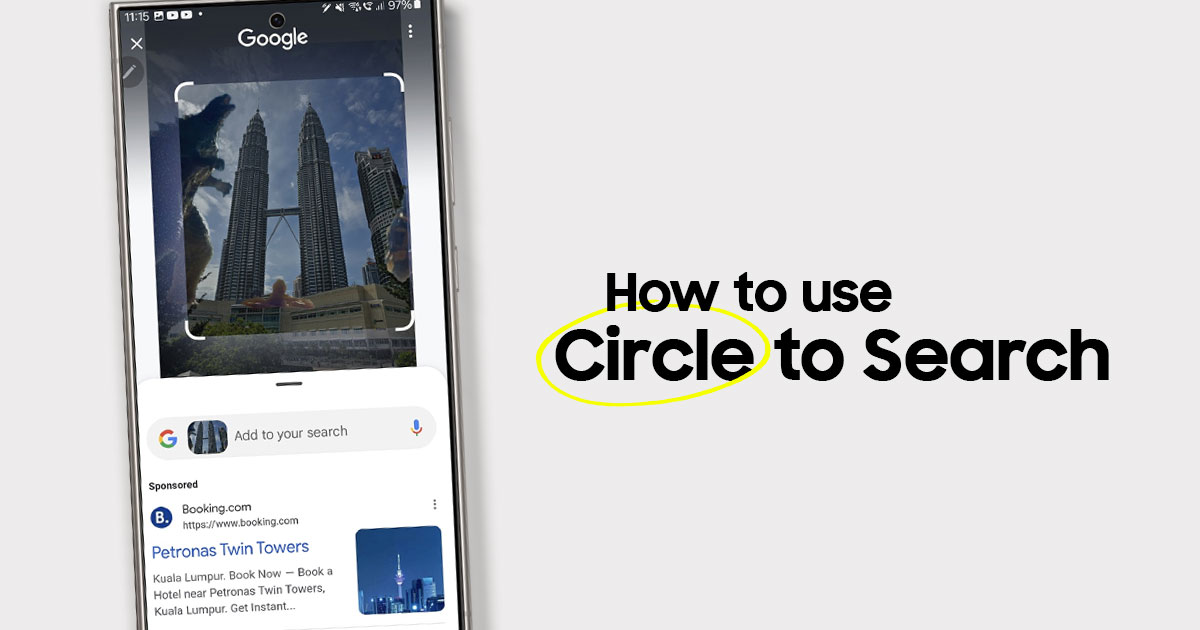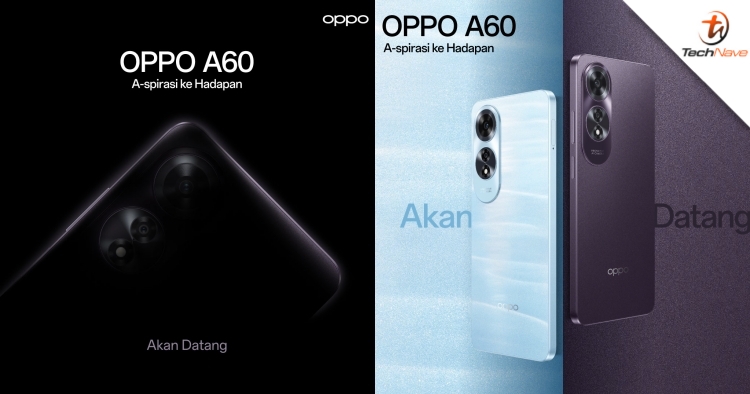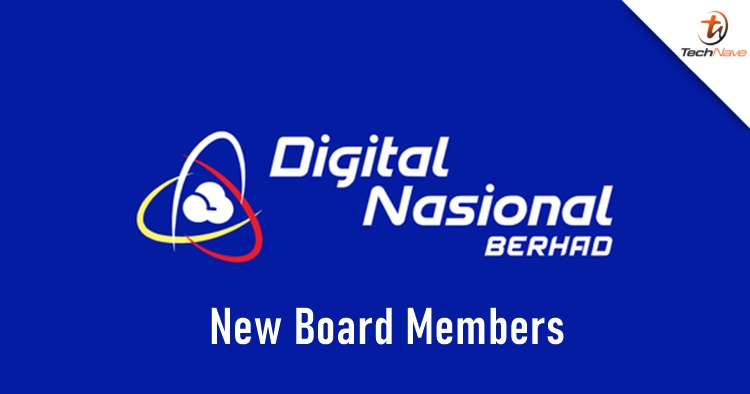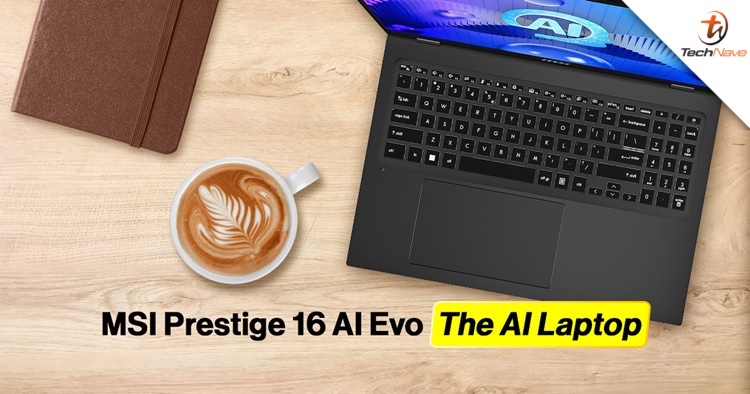
Sorry folks, the TechNave NewsBytes have piled up recently with news from Digi, MDEC, HID Signo, Adobe 36 Days of Type, Kaspersky Coronavirus, Celcom, TIME, Tibco, eJamin, realme, Xiaomi and more. We’ll try and cover more, more regularly as they roll in so stay tuned to TechNave.com
HID Global unveils its HID Signo readers
HID Global recently announced the launch of HID® SignoTM, its signature line of readers that creates a new industry benchmark for the most adaptable, interoperable and secure approach to access control. The new readers dramatically simplify system deployment and management, meet the advanced security requirements of today’s dynamic environments and set organizations up for smarter, more connected access control.
For ultimate versatility, the readers are interoperable with over a dozen physical and mobile credential technologies so organizations can use their technology of choice and easily migrate to the latest solutions at their own pace. Packed with smart features such as automatic surface detection that recalibrates and optimizes read performance based on the mounting location the readers are also IP65 rated with no additional gasket needed, and feature a capacitive touch keypad resistant to harsh weather conditions.
The new line of HID Signo Readers is available through Advantage Partners in major markets worldwide, with a phased roll out in select regions.
Adobe’s 36 Days of Type contest celebrates the art of text
Adobe is proud to announce the partnership with 36 Days of Type to celebrate the art of type and lettering design around the world. For the next 36 days, any designer, illustrator, artist, or hobbyist can upload their own creative take on a letterform and share it with the world. On April 10, a panel of five judges around the world will pick the most unique, creative, or innovative letterform sets. Six winners will be awarded a one-year Creative Cloud subscription for their 36 Days of Type submission.
Kaspersky warns of coronavirus spam and phishing campaigns
As coronavirus (COVID-19) continues to spread across the world, users are increasingly being left confused with fake information being distributed online at a very high rate. Cybercriminals have been amongst the first to jump on this activity, hoping to take advantage of unsuspecting users.
At first, we found emails offering products such as masks, and then the topic became more commonly used in Nigerian spam emails. We also found scam emails with phishing links and malicious attachments. One of the latest spam campaigns mimics the World Health Organization (WHO), showing how cybercriminals recognize and are capitalizing on the important role WHO has in providing trustworthy information about the coronavirus. Users receive emails allegedly from WHO, which supposedly offer information about safety measures to be taken to avoid infection. Once a user clicks on the link embedded in the email, they are redirected to a phishing website and prompted to share personal information, which ends up in the hands of cybercriminals. This scam looks more realistic than other examples we have seen lately, such as alleged donations from the World Bank or IMF for anyone who needs a loan.
In order to stay safe, we advise users to carefully study the content of the emails they receive and only trust reliable sources. If you are promised a vaccine for the virus or some magic protective measures, or content of the email is making you worried, it has most likely come from cybercriminals.
This is especially true if the sender suggests clicking on a link and sharing your personal data or opening an attachment. You should not donate any real money or trust information with promises to help those affected by the virus, even if the email comes from someone who introduces themselves as an employee of a trusted organization. Finally, double check the email address, as scammers often use free email services or addresses that have no relation to the organization mentioned.
Kaspersky detection technologies have also found malicious files disguised as documents related to the virus. The malicious files were masked under the guise of pdf, mp4 and docx files about the coronavirus. The names of files imply that they contain video instructions on how to protect yourself from the virus, updates on the threat and even virus detection procedures, which is not actually the case. In fact, these files contained a range of threats, from Trojans to worms, which are capable of destroying, blocking, modifying or copying data, as well as interfering with the operation of computers or computer networks.
Some malicious files are spread via email. For example, an Excel file distributed via email under the guise of a list of coronavirus victims allegedly sent from the World Health Organization (WHO) was in fact a Trojan-Downloader, which secretly downloads and installs another malicious file. This second file was a Trojan-Spy designed to gather various data, including passwords, from the infected device and send it to the attacker.
Governments and businesses across the world are increasingly encouraging home working in a bid to slow the spread of COVID-19/coronavirus. It is likely that, where feasible, companies will allow more people than ever before to work remotely, so now is a good time for organizations to re-examine security around remote access to corporate systems. Once devices are taken outside of a company’s network infrastructure and are connected to new networks and WIFI, the risks to corporate information increase. There are a number of simple steps that can be taken to reduce the cyber-risks associated with home working, and Kaspersky advises the following:
- Provide a VPN for staff to connect securely to the corporate network
- All corporate devices – including mobiles and laptops – should be protected with appropriate security software, including mobile devices (e.g. allowing data to be wiped from devices that are reported lost or stolen, segregating personal and work data, along with restricting which apps can be installed)
- Always implement the latest updates to operating systems and apps
- Restrict the access rights of people connecting to the corporate network
- Ensure that staff are aware of the dangers of responding to unsolicited messages
TIME revenues show healthy growth
TIME dotCom Berhad closed the financial year ended 31 December 2019 with a consolidated revenue of RM1,113.9 million, a 13.3% increase over the RM983.4 million recorded in FY2018.
Revenue growth was recorded across all core customer groups, led by Wholesale and Retail customers. Excluding one-off revenues from non-recurring contracts, the data and data centre businesses recorded year-on-year growth of 16.6% and 2.4%, respectively.
In FY2019, profit before tax grew to RM328.1 million, representing a 7.6% increase over the same period for the preceding year (FY2018: RM304.8 million). On an adjusted basis, excluding the impact of foreign exchange and one-off items, FY2019 profit before tax grew 21% year-on-year. The increase can be attributed to higher overall revenues, a higher share of profit from investments in associates and a higher interest income in the current reporting year.
For the financial year under review, TIME declared an ordinary interim and a special interim tax exempt (single tier) dividend of 9.95 sen and 19.08 sen per ordinary share respectively, which will be paid out on 31 March 2020.
Digi, MDEC and UNICEF + MOE collaborate on Future Skills For All
Digi Telecommunications Sdn Bhd (Digi), Malaysia Digital Economy Corporation (MDEC), and UNICEF with the support of the Ministry of Education (MOE) today announced their collaboration to embark on a Future Skills For All programme. It aims to make the learning of digital skills easier and more accessible for schoolchildren.
Future Skills For All is a three-year programme that aims to support MOE’s efforts to strengthen the teaching and learning of Computational Thinking and Computer Science in national schools. The initiative will see the digitisation of modules for the Design and Technology (RBT) subject for Primary 5-6 students, Basic Science Computer (ASK) and Science Computer (SK) subjects for students from Secondary 1-3 and 4-5 respectively. The digital modules, comprising tutorial videos, practical quiz assessment and project making contents will supplement learnings from existing textbooks used by schoolchildren as part of their education syllabus, thus leveling up their comprehension of these subjects.
The programme, which is in its first phase, will be implemented nationwide. Schoolchildren and educators can begin accessing the digitised modules of the Design and Technology, and Science Computer subjects via MOE’s Google Classroom platform towards end of March this year.
In order to ensure widespread reach and to drive adoption of the modules across schools and community centres, the Future Skills For All programme will progressively be introduced at Digi Internet centres, Digital Maker Hubs affiliated to the #mydigitalmaker movement, state libraries, rural internet centres, alternative learning centres for refugee communities, and other selected community centres across Malaysia. Additionally, over 1,300 micro:bit starter kits which are pocket-sized micro-computers often used in programming studies, will be distributed to these community centres to provide students with a more enriching and hands-on learning experience.
Affin Hwang AM Selects TIBCO
TIBCO recently announced it has been selected by Affin Hwang Asset Management Berhad (Affin Hwang AM) as a technology vendor supporting the company’s digital strategy to achieve reliable data migration. Affin Hwang AM is an independently managed, bank-backed asset management firm that started in 2001. The company will use TIBCO Data Virtualization for real-time access to their data while minimizing complexity and cost.
TIBCO Data Virtualization is essential to digital businesses, helping improve stability and performance for downstream systems, as well as flexibility and faster time to market. TIBCO’s Data Virtualization capabilities save the time and effort of physically moving data into a single source. In addition, large data volumes from across multiple data warehouses can be combined into a single view and quickly analyzed or turned into a report.
Celcom and MDEC collaborate on SME digitisation
Celcom Axiata Berhad and the Malaysia Digital Economy Corporation Sdn. Bhd. (MDEC) will explore joint initiatives with the goal of accelerating digitisation of SMEs and expanding the digital ecosystem to support Malaysia’s vision of becoming a digital nation. This includes leveraging on the push for Industrial Revolution 4.0 (IR4.0) and 5G development.
Idham Nawawi, Chief Executive Officer of Celcom Axiata Berhad and Surina Shukri, Chief Executive Officer of MDEC signed the MoU in a ceremony held at Celcom’s headquarters, @celcom in Petaling Jaya.
The Memorandum of Understanding (MoU) will initially enable Celcom to engage with MDEC’s established partners that offer products, solutions, and services of various technology pillars. Celcom is looking forward to leverage on the anticipated partnerships as a platform to enhance its IoT and 5G Centre of Excellence, as well as expanding its reach into multiple verticals and consumers, providing IoT solutions, Smart City and Smart Home Solutions, e-sports, connectivity, digital content, cybersecurity, among others.
As the MoU will focus mostly on digital business acumen development for these segments, Celcom and MDEC will collaborate to accelerate digitalising of businesses among local small and medium enterprises (SMEs) and startups, This will include digital entrepreneurship training and skills development that will create more space for the budding entrepreneurs to build and scale their businesses in the digital economy. Other than that, SMEs and start-ups will have the opportunity to leverage on Celcom’s digital offering for businesses, such as Business Suite for Retail™.
eJamin now lets you pay your bail online

DAPAT Vista (M) Sdn Bhd, Bank Islam Malaysia Bhd and Bank Muamalat Malaysia Bhd have signed Collaboration Agreements to launch Malaysia’s pioneer digital bail payment solution, eJamin. eJamin is the first digital bail payment solution in Malaysia and South East Asia that provides bailors the convenience of expedient and efficient payment to ensure the quick release of those in remand.
eJamin allows bailors to post bail through mobile devices and desktops. Bailors will no longer be required to go through the lengthy and time-consuming process of traveling between the court and the bank to open a surety account. The convenience of eJamin allows bail payment to be made instantaneously via FPX online banking. What used to take four to five hours can now be done within thirty minutes.
Bailors are required to complete an electronic form on eJamin with both their required personal details and that of the Accused’s. Once payment is made through the FPX online interchange, bail money is automatically routed to the designated Bank Islam or Bank Muamalat accounts. At the close of the case, bail money will be refunded to bailor’s bank account via eJamin within a reasonably short time.
eJamin is currently available at the following Courts:
- Petaling Jaya Court Complex
- Kuala Lumpur Court Complex
- Shah Alam Court Complex
- Klang Court Complex
- Ampang Court Complex
- Selayang Court Complex
- Kajang Court Complex
- Seremban Court Complex
Plans are to fully deploy at Courts throughout Malaysia by the end of 2020.
AMD Ryzen 5 3500X now available in Malaysia
Following last year’s global announcement on the AMD Ryzen 5 3500X, we are happy to announce that it will be available this week for RM639. Featuring a base clock speed of 3.6Ghz, 6 Cores and 6 Threads, it can reach an estimated Boost Clock speed of 4.1GHz with a TDP of 65w. It offers a 32MB cache and comes with a Wraith Stealth cooler.
Xiaomi Redmi Note 8 and Redmi Note 8 pro featured in 2019 Global Top Smartphones for Q4 2019
Xiaomi is proud to announce its popular smartphones, the Redmi Note 7 and Redmi Note 8 series, have reached a new milestone in 2019. According to the latest data from Canalys, both the Redmi Note 8 and Redmi Note 8 pro were featured in the 2019 Global Top Smartphones list in Q4 2019.
realme gains a place in the Top Spots for the Philippines and Egypt
According to the global smartphone analysis in Q4 2019 released by Canalys recently, realme has entered the Top Smartphone Vendors as Top 4 in the Philippines and Top 5 in the Egypt market. The facts inferred that realme has surpassed many other major brands in both of these two regions.
In the Philippines market, realme became the 4th smartphone vendor with a market share of 9%. Meanwhile, the YoY Growth of realme reached to 709% which looks quite outstanding, making it one of the fastest-growing smartphone brands in the market. In the Egypt market, realme has also made it to the Top 5 list.
Digi builds digital resilience for school children through superhero-themed CyberSAFE in Schools contest

Digi Telecommunications Sdn Bhd is collaborating with the Ministry of Education Malaysia and Google Malaysia to launch the second iteration of the Yellow Heart CyberSAFE in Schools Competition in conjunction with Safer Internet Day.
The competition is part of the CyberSAFE in Schools public-private initiative that started in 2011 to address rising concerns around online risks through awareness raising, capacity building for digital resilience and to empower schoolchildren and teachers with digital citizenship skills to stay safe online.
The competition will be held from February 2020 until October 2020 in three, 3-month long seasons. Each season will have 4 winners (primary and secondary schools) that will walk away with a cash prize of RM200 and goodies worth RM400. One winner will be chosen as the Grand Winner from each season and will be entitled to a Mystery Grand Prize.
Open to all primary and secondary students nationwide, students are required to watch a video-story theme around disinformation exclusively created by popular animator Cartoon Hooligans. The video which features the four superheroes, Ah Hock, Besi Man, Black Harimau and Steve Rojak tackling the issue of how information can be easily manipulated and spread maliciously on the internet but ends in a cliff hanger.
Participating students will then need to come up with a solution to the issue by providing a creative ending using information gained from the resources and education games available from cybersafeinschools.my. Submissions are through online via the same website.



















COMMENTS